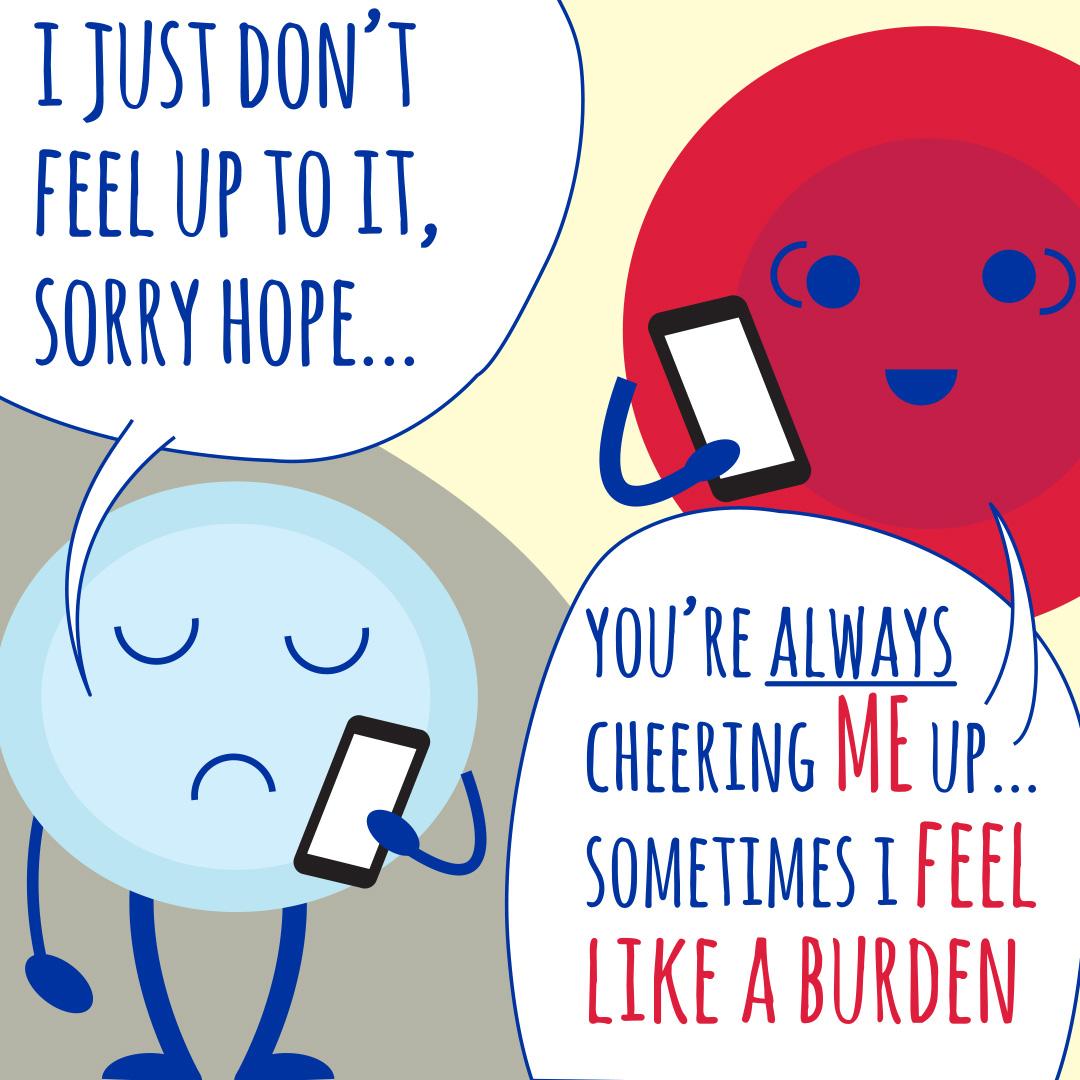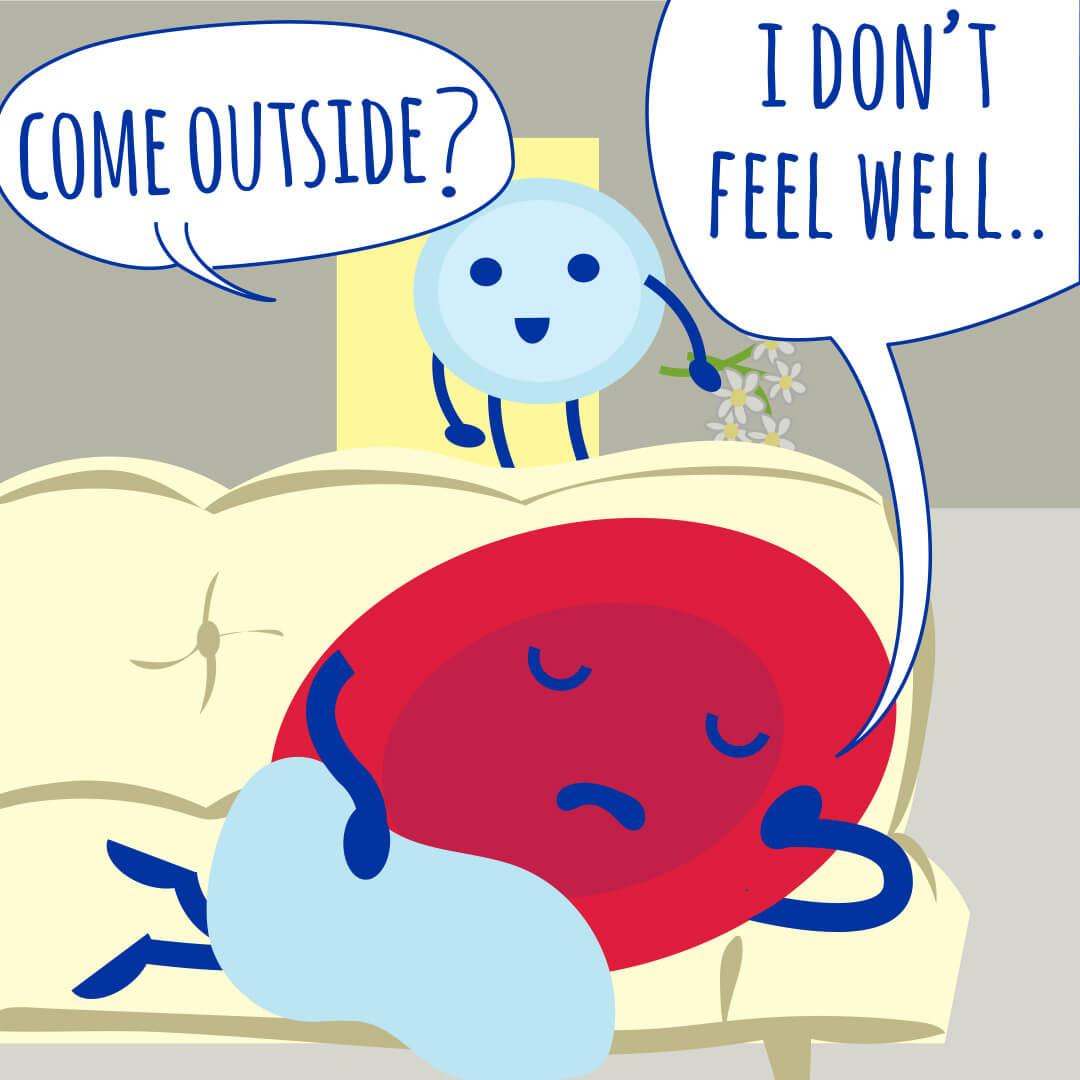Announcing the CPFF 2024-2025 Robert Davidson Fellowships
Advancing research and developing more respiratory specialists to improve care, as well as expand access to care, are the aims of CPFF’s clinical research fellowships. This year’s three fellowship recipients are sure to have an impact on both expanding our knowledge of pulmonary fibrosis and further developing their clinical skills to best serve those with the disease.
Each of the fellows are respirologists and will spend at least 75 per cent of their time conducting research and the balance of their time seeing patients, as well as teaching and taking part in other work in their clinics and collaborating with specialists across the country.
Congratulations to the CPFF 2024-2025 Robert Davidson Fellows.
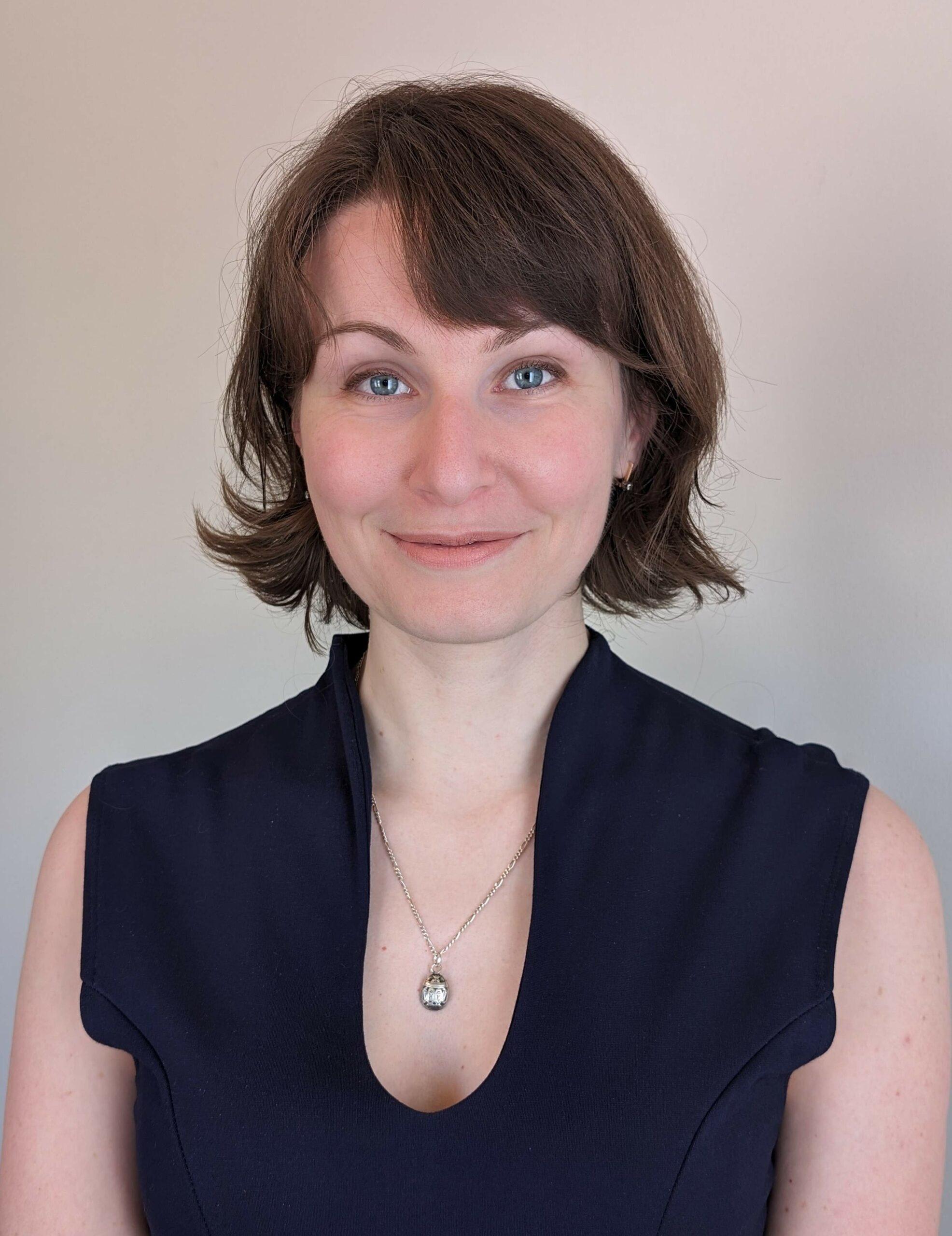
Dr. Albina Tyker
Dr. Tyker will undertake her fellowship at McMaster University’s Firestone Institute for Respiratory Health (FIRH) under the supervision of Drs. Martin Kolb, Nathan Hambly, John McDonough, and Sarah Svenningsen. In addition to spending 25 per cent of her time caring for FIRH patients with interstitial lung disease (ILD), she will also be pursuing a Master’s degree in medical science at McMaster University. She will spend the rest of her time (75 per cent) as lead investigator of a translational research project which will combine advanced CT imaging techniques and molecular analysis of lung biopsy samples to study the role of vascular remodeling in early ILD. This will involve looking at where and how abnormal blood vessels form and most importantly, test whether the presence of abnormal blood vessels seen on routine imaging at the time of diagnosis can predict disease progression over time.
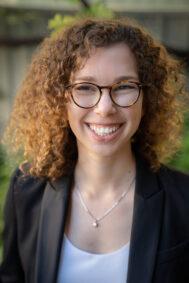
Dr. Na’ama Avitzur
Dr. Avitzur will complete her fellowship in interstitial lung disease (ILD) at the University of British Columbia (UBC), under the supervision of Dr. Christopher Ryerson, Director, ILD Program at St. Paul’s Hospital and Principal Investigator of the Centre for Heart Lung Innovation. Dr. Avitzur will care for ILD patients at St. Paul’s Hospital for 25 per cent of her time, as well as undertaking studies towards a Master of Health Sciences at UBC. Dr. Avitzur’s research will focus on innovative imaging techniques and artificial intelligence (AI) in patients with ILD. The first phase will use a technique that allows a computer algorithm to identify and quantify abnormalities on CT scans of those with sclerosis-associated interstitial lung disease (SSc-ILD). Subsequent phases will expand the algorithm to other types of fibrotic ILD. She’ll test whether the algorithm can help clinicians estimate the effect of treatment on disease progression. In addition, her research will determine whether AI can be used to identify early scarring and progression and compare it to the results obtained by visual assessment by experienced radiologists.
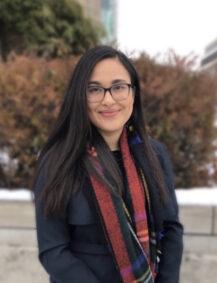
Dr. Yassmin Behzadian
Dr. Yassmin Behzadian will undertake her fellowship at the University of Toronto (U of T) and the University Health Network’s (UHN) ILD Research program under the supervision of Dr. Lee Fidler and Dr. Shane Shapera, Director, Interstitial Lung Diseases Program at Toronto General Hospital. She will spend a quarter of her time caring for ILD patients at the hospital, honing her clinical skills in ILD. She is particularly passionate about quality improvement (QI) research, which addresses gaps in healthcare to improve patient safety and quality of care. She plans to take the Quality Improvement and Patient Safety Certificate course at U of T during her fellowship. Dr. Behzadian’s research project will focus on improving lung cancer screening for eligible patients with ILD. While it is documented that screening improves outcomes, it is underutilized. Dr. Behzadian’s research will be a QI project that aims to better understand and address some of the barriers to discussing and referring eligible patients with ILD for lung cancer screening.
Visit the Research section of CPFFs website for more information about CPFFs fellowship program and research grants, previous fellows and the results of completed research projects.
How CPFF has helped create the first generation of ILD trained clinicians in Canada
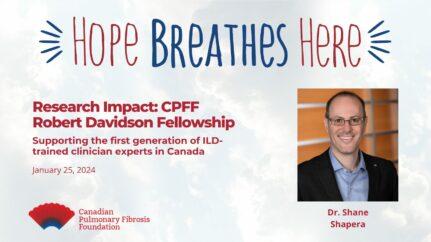
It’s only fitting that in this issue of our newsletter, where we announce our tenth set of Robert Davidson fellows (see preceding article), that we look back at some of what the program has accomplished. Tune in to hear Dr. Shane Shapera of the University Health Network (UHN) in Toronto relate how CPFF has made an enduring contribution to ILD research and care in Canada.
In a recent presentation to the Canadian Pulmonary Fibrosis Foundation (CPFF) Board, Dr. Shane Shapera, Director, Interstitial Lung Disease (ILD) Program at Toronto General Hospital, shared with the directors how he came to build the first ILD clinic in the country and UHN’s ILD research program with the help of CPFF.
Starting on a personal note, Dr. Shapera explains how he went to San Fransisco for two months in 2009 to study an ILD clinic in that city. By some fortunate coincidence, he met Dr. Chris Ryerson of Vancouver, who was in San Fransisco at the same time, doing the same thing. They did not know each other back in Canada, but soon became the Canadian ILD duo in the US city.
Who knew then that the meeting up of these two young doctors would dramatically change ILD care and research in Canada during the next 15 years. Dr. Ryerson is now a world-renowned ILD researcher and keeper of the largest ILD patient registry in the world, CARE-PF. Dr. Shapera established an ILD clinic and research program in Toronto, which would also become one of the early contributors to the registry.
As he began to build the UHN ILD centre, Dr. Shapera met Robert Davidson, who was busy building CPFF. After receiving two grants, totaling $102,000 from the CPFF, the two men began to discuss how they could work together on a long-term basis, to build something with a lasting future, that would maximize the impact for patients. That something would become the CPFF Robert Davidson Fellowship Program.
In his video, Dr. Shapera details some of the outstanding work that has been done by the eight fellows who have trained at UHN. (Many others have been funded at other centres, in Hamilton, Vancouver and Calgary.) He highlights in particular, Dr. Jolene Fisher, who received the first CPFF fellowship in 2014 and Dr. Lee Fidler. Between them, they have published more than 100 articles on ILD in medical journals, in less than 10 years. This is an outstanding accomplishment. Of course, other Robert Davidson fellows have also made substantial contributions to ILD research from other centres, and all continue to do so.
In summary, Dr. Shapera said that together we have created the first generation of ILD-trained clinician experts in Canada; that we have developed academic respirologists who will do research for decades to come; and that each of the fellows have spread their expertise across the country, as health care professionals and as teachers, increasing access to ILD expertise across Canada.
“For all of this, we are all truly grateful to CPFF,” he says.
To learn more about the CPFF Robert Davidson Fellowship Program, and the research they have done, visit the research section of the CPFF website.
Home delivery of liquid oxygen not available to PF patients in most parts of Canada
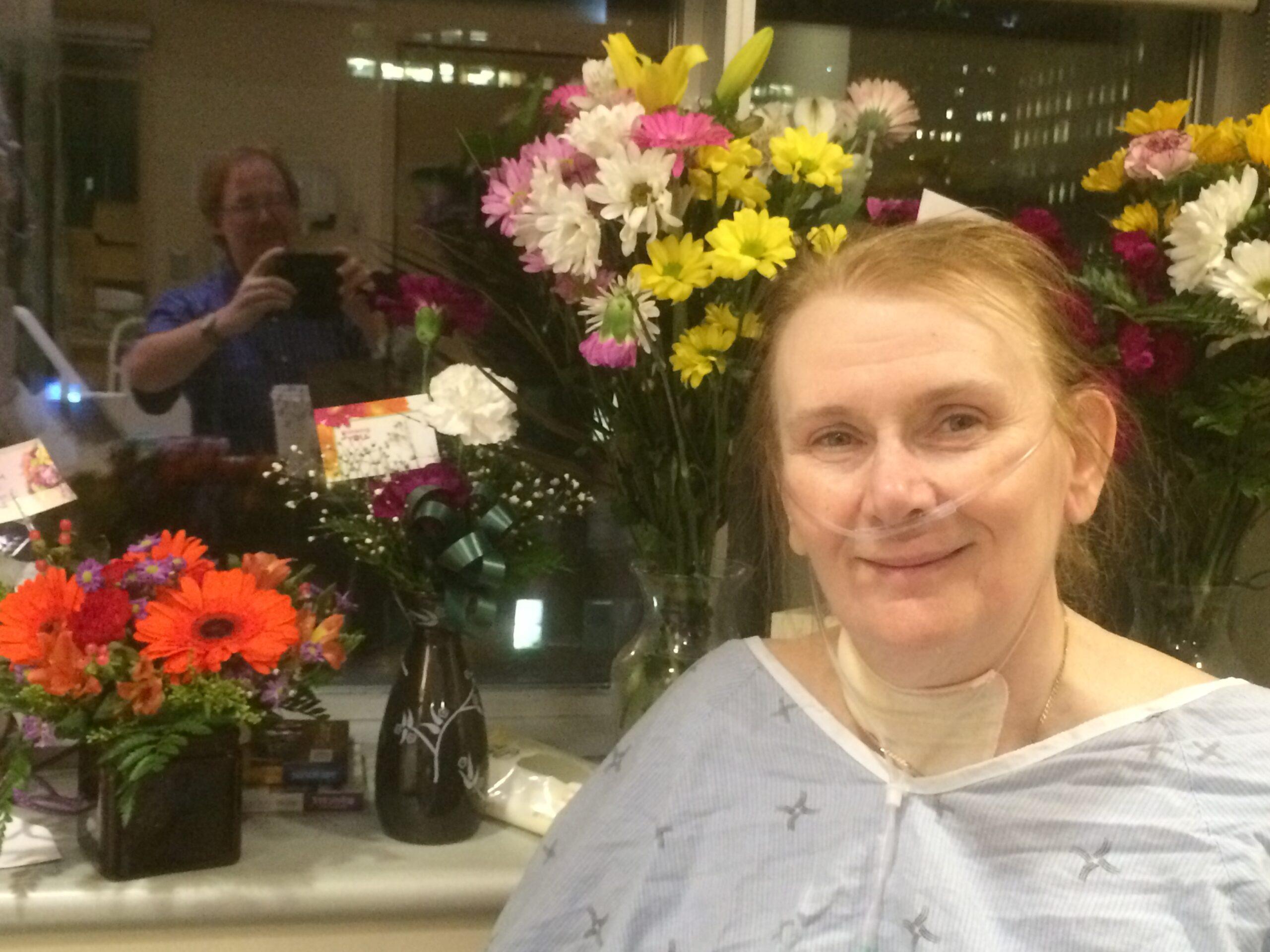
When Eileen Joyce Harvey was 58 years old, she packed up to head for Toronto with her husband Bill and their daughter to prepare for a lung transplant. As long as the risky surgery and her recovery went well, she expected to return to her home in Halifax within 18 months. Eight years later, she is living in the town of Innisfil, Ontario, about 80 kilometers north of Toronto.
After her single lung transplant in 2016, she still requires oxygen and needs liquid oxygen to live the life she wants. Each province and territory have different funding programs for home oxygen therapy and unless you live in Ontario, home delivery of liquid oxygen is likely not covered by your provincial health plan. In some places, like Atlantic Canada, it is not available for home delivery at all, even if you pay for it yourself.
“I was just not ready to live my life trapped at home,” says Eileen Joyce, who was a professional singer, a wife, mother and grandmother when she was diagnosed in 2008. “Even if I was no longer able to sing, I had things to do, and places I wanted to go. I had a life to live. Without liquid oxygen, I could not leave the house, because I needed more than five litres of oxygen per minute whenever I’m walking around. You can’t get that with a portable concentrator.” Read more about Eileen Joyce Harvey’s journey here.
In Ontario, the cost of liquid oxygen is covered by the provincial government for patients who qualify under the government program. That is not the case in other provinces and territories. This is most likely because of the additional costs involved in providing liquid oxygen to patients.
Recognizing caregivers with e-cards, resources and support

April 2 was National Caregivers Day in Canada, an important opportunity to recognize the often-overlooked heroes in the lives of individuals battling pulmonary fibrosis – caregivers. At the Canadian Pulmonary Fibrosis Foundation (CPFF) we know that it’s always a good time to show your appreciation to those who help with your care.
We’ve got some great e-cards that you can send to the person you rely on the most; the neighbour that helps with outdoor chores; or the friend who always calls or takes you out for coffee. Anyone who makes your life easier and more enjoyable.
For caregivers, we hold a national support group online just for you. It’s a safe space for caregivers from across the country to share ideas, experiences and to support one another. The next caregiver support group meeting is Monday, April 8 from 7 to 8 p.m. ET. You need to register in advance in order to attend.
National caregiver group meetings take place bi-weekly on Mondays at 7:00 p.m. ET. You need to register for each session you wish to attend. After registering, you will receive a confirmation email with the information you need to join the meeting.
We’ve also got a whole host of resources tailored just for caregivers, to empower you with the knowledge and tools you need to navigate the complexities of caregiving; as well as some personal stories from caregivers that may inspire you.
You might also want to check out the website of Carers Canada and the webinars it held on April 2. Although you will not be able to participate, since the date has past, the organization usually records and posts the webinars after the fact.
Hope and Ollie support one another
Two-Way Street
Gratitude
As “patient” and “carer,” Hope and Ollie support one another in their relationship. Show your appreciation to your caregivers by sending them an e-card today.





